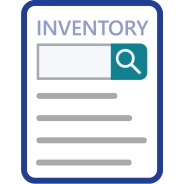
Choose from 5 options:
Our compliance-monitoring activities are designed to ensure regulated entities are aware of and comply with the IC Act. Our activities include:
Where possible, we use information available to us through data-sharing arrangements with other agencies and mandatory reporting, but we may need to request information from a regulated entity or inspect the entity’s premises in order to monitor compliance.
We dedicate significant resources to identifying potential introducers of relevant industrial chemicals and ensuring they’re registered with us. Registration is a fundamental compliance obligation under the IC Act and ensures introducers are kept informed of other obligations relating to the import and manufacture of industrial chemicals. Once registered, introducers receive reminders, specific guidance and access to online resources to help them meet their AICIS obligations. Registered introducers receive important information about changes to the legislation which may affect them and are consulted on these changes before they occur.
Our compliance resources are primarily directed towards monitoring the introduction of chemicals or groups of chemicals that may pose the highest risk if mismanaged. This includes chemicals introduced by entities with a history of non-compliance with the IC Act or related legislation.
We use chemical and toxicological information and modelling to inform our decisions. We also use information about a business entity from various sources to assess the risk of non-compliance against the various obligations of the IC Act and prioritise high-risk entities for monitoring.
We are guided by an entity’s previous compliance history when determining our monitoring frequency and scope. We may consider specific compliance-monitoring strategies for regulated entities that have demonstrated internal systems and processes to ensure their compliance with the IC Act.
Our Executive Director appoints AICIS inspectors in writing for the purpose of undertaking monitoring activities in accordance with the IC Act and the Regulatory Powers Act. AICIS inspectors are authorised to enter any premises (either with consent or under a monitoring warrant) to determine whether an entity is complying with a provision under the IC Act (or related offences) or have provided information that is correct. AICIS inspectors may exercise a number of powers under the Regulatory Powers Act and the IC Act, including:
AICIS officers may apply for a monitoring warrant under the Regulatory Powers Act. Under the warrant, our officers may enter a premises to determine compliance with a provision subject to monitoring, or to determine whether information subject to monitoring is correct. In addition to allowing access to the premises and various information-gathering powers, the warrant creates an obligation for the occupier of the premises to answer any questions or produce documents relating to their obligations under the IC Act. Obstruction of an AICIS Officer executing a monitoring warrant is an offence under s147 of the Criminal Code Act 1995.